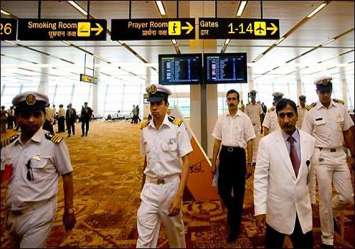Recent convictions of corrupt Customs officials are a sobering reminder that ethical lapses within law enforcement are an ongoing challenge

It is being observed that a curious contrast is unfolding in India’s public discourse. On one hand, a former Customs officer from Goa is being publicly glorified for a decades-old incident; on the other, multiple Customs officials have recently being convicted for corruption. This juxtaposition is portrayed dispassionately here, examining how recent legal convictions cast doubt on retrospective portrayals of heroism.
Decades-old
heroism revisited (subheads)
A biographical film released this week has rekindled the story of Antonio “Costao” Fernandes, a Customs preventive officer famed for a 1991 anti-smuggling operation in Goa. In that incident, Fernandes single-handedly confronted a gold smuggling ring reportedly backed by powerful figures. During a high-speed chase, he used his firearm in self-defence, leading to injury and the death of Alvernaz Alemao, the brother of a former Goa chief minister. The operation made national headlines and culminated in the arrest and detention of the smuggling conspirators. Legally, the case was concluded decades ago (India Today, 2025).
Today, however, this long-settled case is being revisited on screen and in public memory. The officer is depicted as a lone hero who upheld the law against tremendous odds. He is being lionised in media interviews and public discourse as an incorruptible figure who “left an incredible mark on Indian law enforcement history” (India Today, 2025).
The third person narrative in the film emphasises courage and moral integrity. Yet this revival of an old hero’s tale comes at a time when the Customs department’s image is under strain from contemporary events.
Recent corruption
convictions in Customs
In stark contrast to the celebrated past heroism, recent years have seen definitive convictions of Customs officials for corruption. These cases, proven in court, highlight ongoing challenges of integrity within the service.
Bribery in Haryana (2025): In January 2025, a CBI special court in Haryana convicted three Customs officials including two superintendents and an inspector for demanding and accepting a bribe of ₹10 lakh (Saini, 2025). A businessman’s complaint led to a sting operation in which the bribery money was recovered from the officials’ vehicle. Notably, even when the primary witness turned hostile, the court relied on documentary evidence to find the officers guilty, underscoring the strength of the legal process. The officials now await sentencing, having been conclusively found guilty of graft.
Delayed justice in Thane (2023): In December 2023, a CBI anti-corruption court convicted two Customs employees and sentenced them to one year’s imprisonment for a 2006 bribery incident (Karlikar, 2023). The case involved a small ₹500 bribe demanded for issuing a routine fishing permit. Despite the modest sum, the law caught up after 17 years, demonstrating that accountability, albeit delayed, was ultimately enforced. One accused even retired during the prolonged trial, but was still held to account under the Prevention of Corruption Act once evidence proved the offence.
Disproportionate assets in Mumbai (2023): In August 2023, a special CBI court in Mumbai convicted a Deputy Commissioner of Customs for amassing illicit wealth far beyond his official income (Samervel, 2023). The 46-year-old officer had acquired assets worth ₹1.13 crore between 2008 and 2015 over 100% beyond his known legitimate income. He was sentenced to four years’ rigorous imprisonment. His wife was also convicted for abetting the offence by holding benami assets as a “smokescreen to shield ill-gotten gains” (Samervel, 2023). The court not only imposed jail terms but ordered that the confiscation of the unlawful assets be pursued, signalling a clear message that corruption at high levels will be penalised.
Contrasting narratives
and legal realities
Despite these differences, a comparative analysis suggests an underlying theme: the rule of law is paramount in both scenarios. In 1991, an intensive legal scrutiny followed the shooting a murder charge was filed by the CBI, though it failed to result in a conviction as evidence supported the officer’s account. In 2023-25, lengthy investigations and trials likewise culminated in convictions of corrupt officers once evidence proved their guilt beyond reasonable doubt. Each situation went through the rigours of judicial process.
However, the public narrative does not always reflect this legal nuance. The current retelling of Fernandes’s story elevates the heroic narrative focusing on courage and honour with little mention that he was at one point an accused in a homicide inquiry (later absolved). Conversely, the corruption convictions receive brief news coverage but limited public discussion. This imbalance in attention can create a misleading impression: celebrating a singular “hero” figure, while glossing over the fact that institutional integrity is often undermined by numerous lesser-known offenders. The dispassionate reality is that law enforcement institutions are complex, capable of producing both heroes and wrongdoers. Any retrospective heroism should thus be viewed in context, mindful that no institution is beyond reproach.
Balancing memory
and accountability
A rational analysis of these developments advocates for balanced public memory and robust institutional accountability. Celebrating an honest officer’s courage is certainly worthwhile; society benefits from remembering examples of integrity and valour in public service. However, such celebration must not become one-dimensional hero-worship. It should be grounded in facts, acknowledging both the hero’s contributions and the full legal context of the events.
Equally important is to maintain focus on institutional accountability in the present. The recent convictions of corrupt Customs officials are a sobering reminder that ethical lapses within law enforcement are an ongoing challenge. These cases should form part of the public narrative too, to prevent a distorted view that all officers are heroes or that past glories somehow redeem current misconduct. Systemic reform and vigilance against corruption deserve as much attention as historical heroics. Only by keeping these issues in the public eye can true accountability be demanded of institutions.